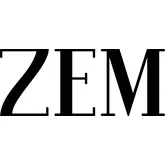Škoda Electric will supply 14 new electric buses to the Prague Public Transit Company (DPP). These will be the first standard-length electric buses purchased by the city.
The first Škoda E’City electric bus is scheduled to arrive in Prague at the end of December this year, and the remaining 13 at the beginning of next year.
DPP last year announced a competition for supplying the buses. The total value of the contract, including possible options such as purchase of new storage batteries, is CZK 207 million.
The Škoda E’City is a fully emission-free electric bus. Its heating and air conditioning are powered exclusively electrically. This is unlike the vast majority of electric buses operated in the Czech Republic, which use standard diesel heating that produces a significant amount of emissions, especially in the winter.
The low-floor bus can transport capacity of 69 people. To make it easier for passengers to get on and off, it is equipped with a kneeling system that can lower the boarding edge at the door. The pneumatic chassis system, on the other hand, also allows the height of the body to be raised.
“We promised that by 2024 there would be a fifth less emissions in Prague, and by 2030 a third of buses will be electrically powered. One of the steps is the purchase of new electric buses,” Prague Deputy Mayor Adam Scheinherr, responsible for transit and chairman of the DPP supervisory board, said in a press release.
DPP should become the flagship among transport companies in the Czech Republic by using modern 21st century technologies, according to Scheinherr.
“Prague will become a city in which bus services within public transport will normally provide quiet, emission-free vehicles for alternative fuels, and by purchasing the first 100 percent emission-free electric buses for Prague public transport, we are contributing to the fulfillment of Prague's climate commitment,” he said.
Scheinherr says the buses will reduce traffic noise, contribute to cleaner air, and improve the environment. “I want Prague to be a friendly place to live, and the DPP bus fleet has been going against that,” he said.
Petr Witowski. chairman of the board of directors and CEO of DPP, said the purchase of the first 14 electric buses was a step toward fulfilling DPP’s alternative fuel strategy.
“We are starting to build a new fleet of low-emission and emission-free road vehicles at DPP. We want to make significant progress in it this year,” he said.
“As part of this strategy, we would like to announce further public contracts for the purchase of 140 hybrid buses, 15 articulated trolleybuses, and 45 battery trolleybuses of standard length for electrification of lines on the left bank of the Vltava,” he said.
“In parallel with the purchase of new electric buses, we are preparing charging infrastructure for them in the Vršovice garage and at the Strašnická and Želivského final stops, which we want to complete this year so that we can put the first Škoda E'City into normal operation in Prague at the end of this year. And next year we will test a hydrogen-powered bus,” he added.
Petr Brzezina, chairman of the board and president of Škoda Transportation, said he was pleased that Škoda has succeeded in the tender.
“We will supply vehicles to our capital that do not burden the environment in any way, have quiet operation, and in addition have low operating costs, so their operation is sustainable in the long run,” he said.
Škoda Electric is a division of Plzeň-based Škoda Transportation, which engineers and makes trams, trains, and buses. It is a completely separate entity from passenger car company Škoda Auto.
The first electric buses purchased by DPP in recent history were two minibuses in January 2010. Due to the high failure rate, DPP shut them down in November 2011. They were later returned to the manufacturer.
In 2014 an electric midibus and a minibus were tested, but both were found to be unsuitable. From 2015 to 2017, DPP tested the Czech-made SOR EBN electric bus. After a break of one and a half years, the manufacturer made it available to DPP again. It has been in regular operation to this day, but is not owned by DPP.
One of the last types of electric buses that DPP tested in normal operation was a prototype of the SOR NS 12 model, which was deployed from October 2017 to October 2019. It was not purchased and in no longer being used.












 Reading time: 3 minutes
Reading time: 3 minutes 




























